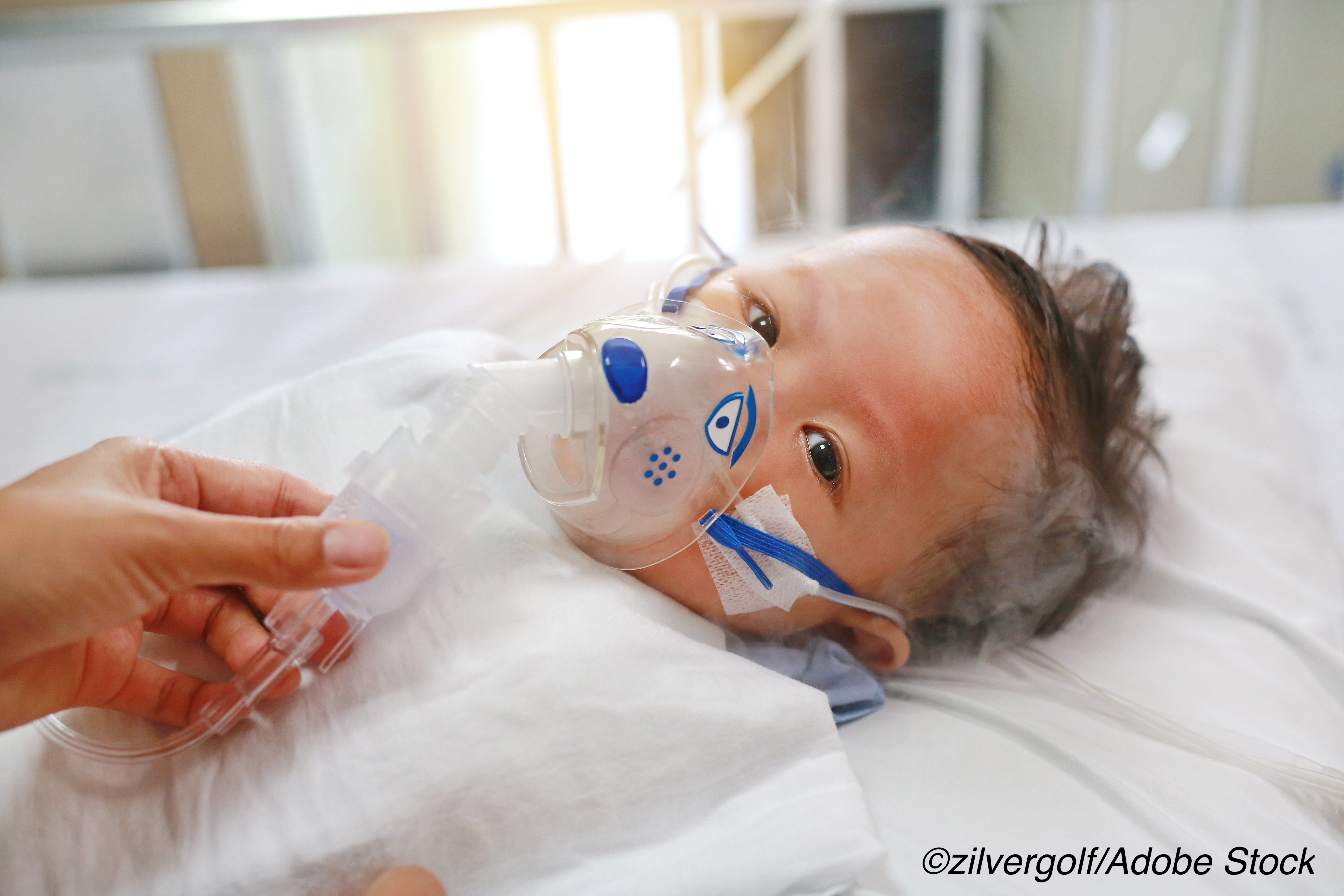 Results from two trials supported differing approaches towards preventing respiratory syncytial virus (RSV) in infants.
Results from two trials supported differing approaches towards preventing respiratory syncytial virus (RSV) in infants.
In a trial of single-dose nirsevimab reported in The New England Journal of Medicine, researchers found that administering nirsevimab (a monoclonal antibody to F protein with an extended half-life) in preterm infants resulted in a significantly lower incidence of RSV-associated lower respiratory tract infection and hospitalizations compared to placebo.
The second trial involved the administration of a maternal RSV vaccination during pregnancy, and while it failed to meet its primary outcome of vaccine efficacy against RSV-associated, medically significant lower respiratory tract infection in infants up to 90 days of life, it did show evidence of efficacy against RSV-associated lower respiratory tract infection with severe hypoxemia and hospitalization for RSV-associated lower respiratory tract infection.
There is currently no approved vaccine for RSV infection, and natural infection doesn’t result in sustained immunity, meaning reinfection is common. RSV is the predominant cause of hospitalizations in infants who develop lower respiratory infections. According to a study in the Lancet, in 2015 an estimated 3.2 million hospitalizations for RSV-associated lower respiratory tract infection occurred in children under the age of 5 worldwide, resulting in the deaths of 118,000 these children. And, almost half of these hospitalization and deaths occurred in infants under the age of 6 months.
The nirsevimab trial was conducted at 164 sites in 23 countries. Researchers, led by M. Pamela Griffin, MD, AstraZeneca, Gaithersburg, Maryland, enrolled 1,447 infants born between 29 and 35 weeks of gestation near the onset of the RSV season who were randomized on a 2:1 basis to receive intramuscular prophylaxis with nirsevimab or placebo.
They found that the incidence of medically attended RSV-associated lower respiratory tract infection was 70.1% lower (95% CI, 52.3 to 81.2) with nirsevimab prophylaxis than with placebo (2.6% versus 9.5%), while the incidence of hospitalization for RSV-associated lower respiratory tract infection was 78.4% lower (95% CI, 51.9-90.3) with nirsevimab than with placebo (0.8% versus 4.1%).
Adverse events were similar in both groups.
In the second trial, researchers led by S.A. Madhi, MB, ChB, University of the Witwatersrand, Johannesburg, South Africa, evaluated the efficacy of a maternal RSV F protein nanoparticle vaccine during pregnancy against RSV-associated lower respiratory tract infection in their infants, who were followed for lower respiratory tract infection for up to 180 days.
The phase III trial was performed at 87 sites in Argentina, Australia, Chile, Bangladesh, Mexico, New Zealand, the Philippines, South Africa, Spain, the United Kingdom, and the United States.
A total of 4,636 pregnant women (28 weeks through 36 weeks of gestation, with an expected delivery date near the start of the RSV season) were randomized on a 2:1 basis to either receive a single dose of the RSV vaccine or placebo.
Madhi and colleagues found that the percentage of infants with an RSV-associated, medically significant lower respiratory tract infection through 90 days was 1.5% in the vaccine group and 2.4% in the placebo group (estimated vaccine efficacy of 39.4%; 97.52% CI, −1.0 to 63.7; 95% CI, 5.3-61.2). These results, wrote Madhi and colleagues, “did not meet the prespecified criterion for success.”
The percentage of infants in the per-protocol population with RSV-associated lower respiratory tract infection with severe hypoxemia through 90 days was 0.5% in the vaccine group and 1.0% in the placebo group (estimated vaccine efficacy, 48.3%; 95% CI, −8.2-75), while the percentage infants hospitalized for RSV-associated lower respiratory tract infection through 90 days was 2.1% in the vaccine group and 3.7% in the placebo group (vaccine efficacy, 44.4%; 95% CI, 19.6-61.5). These results were “suggestive of a possible benefit” and should be viewed as hypothesis-generating, reported Madhi and colleagues.
As for adverse events, local injection-site reactions were more common in women who received the vaccine compared to those who received placebo (40.7% versus 9.9%) but were mostly mild. Other adverse events were comparable between the groups.
In an editorial accompanying the study, H. Cody Meissner, MD, Tufts University School of Medicine, Boston, wrote that the results from both trials “support the development of a monoclonal antibody with an extended half-life to deliver passive immunity, as well as provide a basis for further study of nanoparticle or alternative RSV vaccines to induce a protective and durable neutralizing antibody response.”
“Both approaches offer hope that an effective means for preventing RSV infections may finally be in sight,” he added.
-
Administering nirsevimab to preterm infants resulted in significantly lower incidence of RSV-associated lower respiratory tract infection and hospitalizations compared to placebo.
-
A trial evaluating the administration of a maternal RSV vaccination during pregnancy failed to meet its primary outcome of vaccine efficacy against RSV-associated, medically significant lower respiratory tract infection in infants up to 90 days of life; however, it did show evidence of efficacy against RSV-associated lower respiratory tract infection with severe hypoxemia and hospitalization for RSV-associated lower respiratory tract infection.
Michael Bassett, Contributing Writer, BreakingMED™
The nirsevimab trial was supported by Astra Zeneca and Sanofi Pasteur. The RSV vaccine trial was supported by Novavax and a grant from the Bill and Melinda Gates Foundation.
Griffen reported being employed by and owning stock in AstraZeneca.
Madhi reported grants and non-financial support from Novavax, during the conduct of the study; grants and personal fees from BMGF, grants from Sanofi, grants from Pfizer, grants from GSK, grants from Minervax, outside the submitted work.
Meissner had no disclosures.
Cat ID: 138
Topic ID: 85,138,254,501,728,791,730,124,190,138,192,653,195,925


